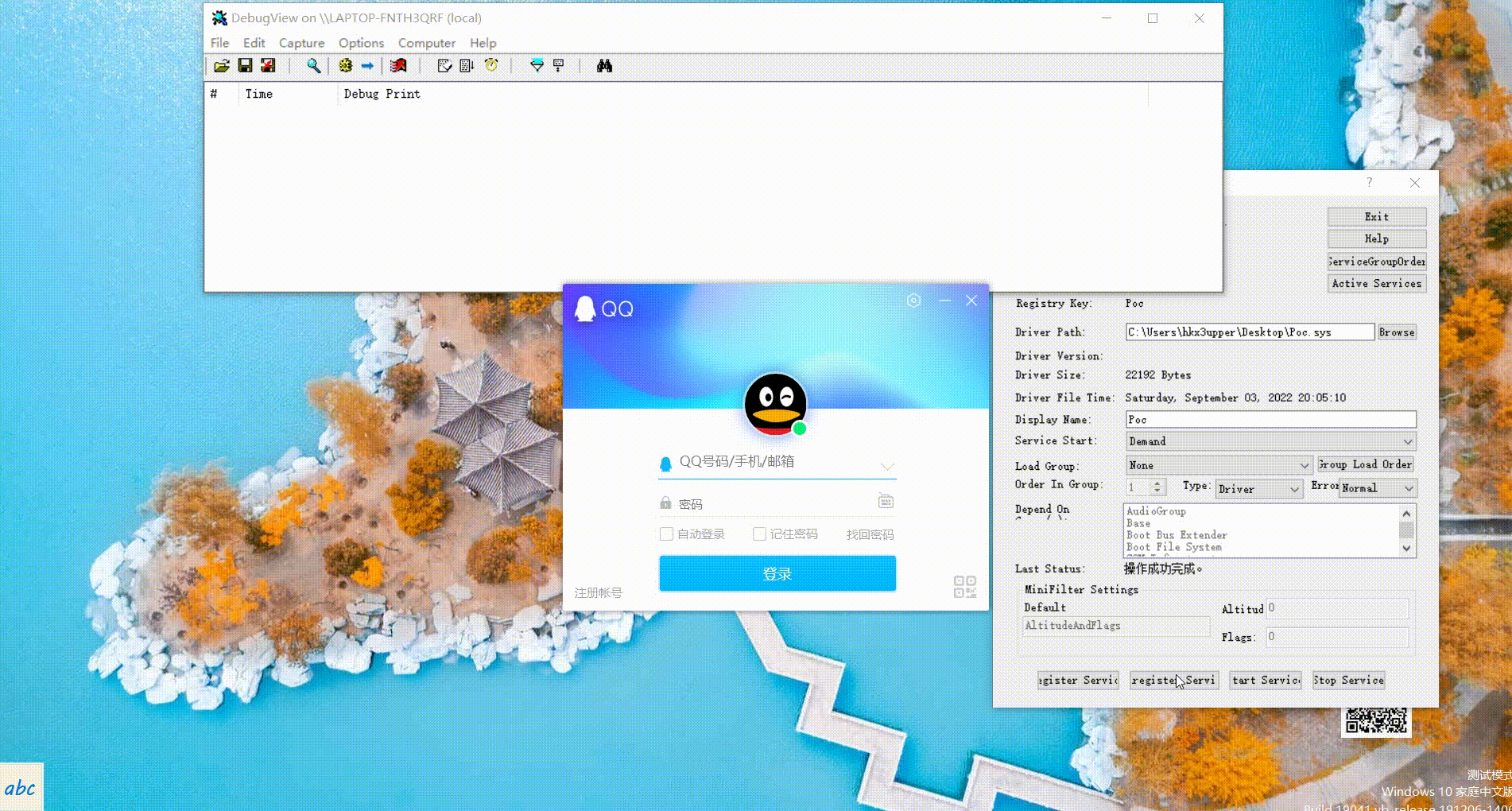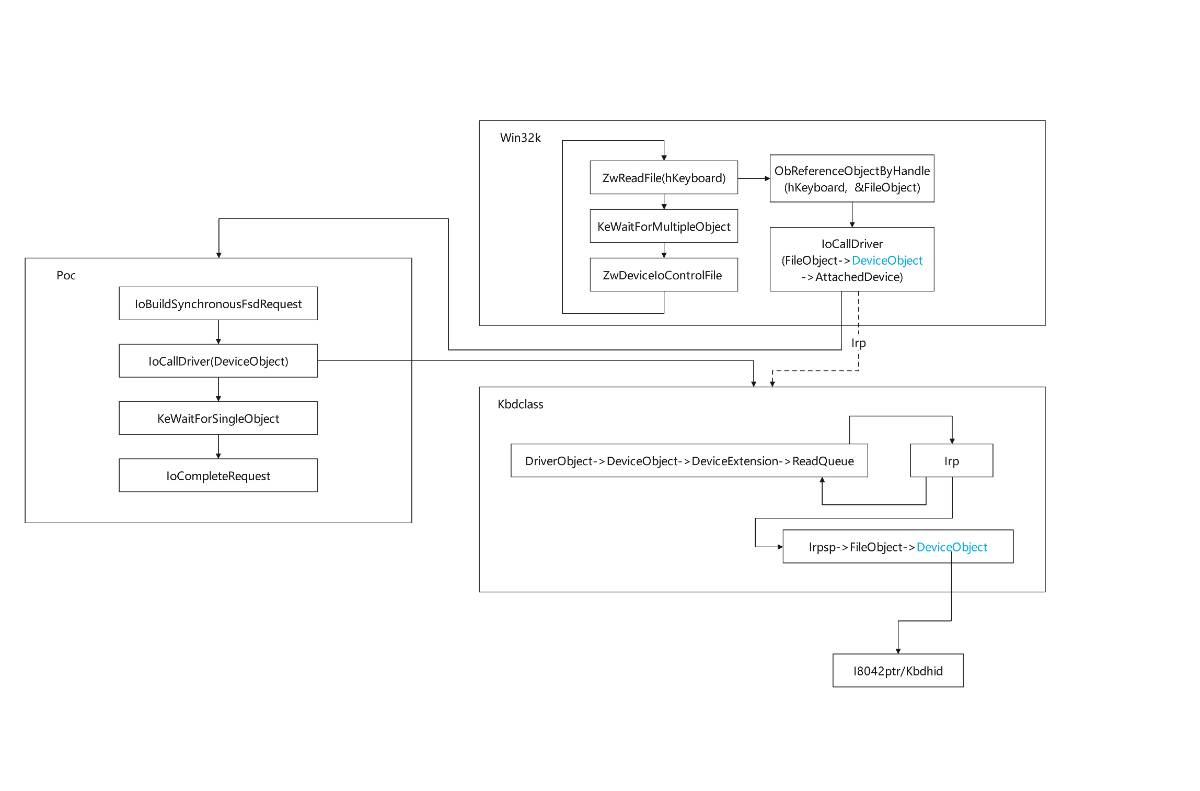编程技术-谁会不喜欢一个Windows内核键盘记录器呢(详解)
推荐 原创更多【谁会不喜欢一个Windows内核键盘记录器呢(详解)】相关视频教程:www.yxfzedu.com
相关文章推荐
- CTF对抗-Java安全小白的入门心得 - 初见RMI协议 - 游戏基址 二进制漏洞 密码应用 智能设备
- 编程技术-这个崩溃有点意思,你中过招吗 - 游戏基址 二进制漏洞 密码应用 智能设备
- 软件逆向-PE头解析-字段说明 - 游戏基址 二进制漏洞 密码应用 智能设备
- 软件逆向-PE加载过程 FileBuffer-ImageBuffer - 游戏基址 二进制漏洞 密码应用 智能设备
- 加壳脱壳-进程 Dump & PE unpacking & IAT 修复 - Windows 篇 - 游戏基址 二进制漏洞 密码应用 智能设备
- CTF对抗-第五空间 crackme深度分析 - 游戏基址 二进制漏洞 密码应用 智能设备
- Pwn-DAS9月月赛PWN题出题心路 - 游戏基址 二进制漏洞 密码应用 智能设备
- CTF对抗-CSAW-CTF-Web部分题目 - 游戏基址 二进制漏洞 密码应用 智能设备
- CTF对抗-2022MT-CTF Re - 游戏基址 二进制漏洞 密码应用 智能设备
- 编程技术-逆向IoRegisterPlugPlayNotification获取即插即用回调地址,配图加注释超级详细 - 游戏基址 二进制漏洞 密码应用 智能设备
- 软件逆向-针对百度旗下的一个会议软件,简单研究其CEF框架 - 游戏基址 二进制漏洞 密码应用 智能设备
- Android安全-逆向篇三:解决Flutter应用不能点击问题 - 游戏基址 二进制漏洞 密码应用 智能设备
- Android安全-Android - 系统级源码调试 - 游戏基址 二进制漏洞 密码应用 智能设备
- Android安全-逆向分析某软件sign算法 - 游戏基址 二进制漏洞 密码应用 智能设备
- 软件逆向-APT 双尾蝎样本分析 - 游戏基址 二进制漏洞 密码应用 智能设备
- 编程技术-利用GET请求从微软符号服务器下载PDB - 游戏基址 二进制漏洞 密码应用 智能设备
- 编程技术-NtSocket的稳定实现,Client与Server的简单封装,以及SocketAsyncSelect的一种APC实现 - 游戏基址 二进制漏洞 密码应用 智能设备
- 软件逆向-wibu证书 - asn1码流 - 游戏基址 二进制漏洞 密码应用 智能设备
- 软件逆向-关于USB管控的方案,某某USB管控逆向分析 - 游戏基址 二进制漏洞 密码应用 智能设备
- 编程技术-谁会不喜欢一个Windows内核键盘记录器呢(详解) - 游戏基址 二进制漏洞 密码应用 智能设备
记录自己的技术轨迹
文章规则:
1):文章标题请尽量与文章内容相符
2):严禁色情、血腥、暴力
3):严禁发布任何形式的广告贴
4):严禁发表关于中国的政治类话题
5):严格遵守中国互联网法律法规
6):有侵权,疑问可发邮件至service@yxfzedu.com
近期原创 更多


